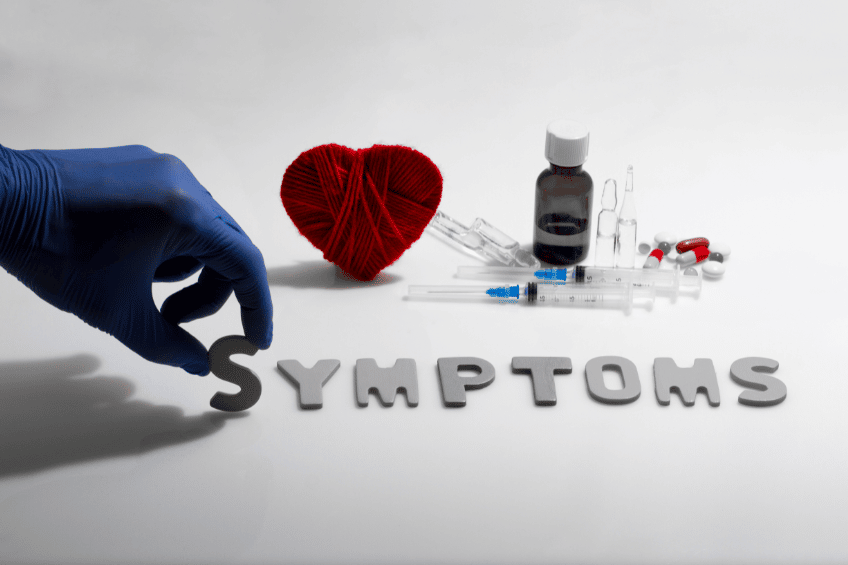Symptoms and Stages
The average time between the acquisition of the disease and the onset of early symptoms may be 10 to 90 days, but typically 21 days. [1]
Syphilis is often referred to as “The Great Pretender”, because it can mimic symptoms of other diseases, such as canker sores, herpes, and Lyme disease. [5]
Syphilis develops in four stages that can last for weeks, months or even years.
The symptoms of syphilis are similar in both men and women, and they are often mild and left unnoticed. You may be infected and pass on the infection without knowing it.
The symptoms may change over time and may come and go. But even if symptoms have improved, there is still a chance of being contagious and developing serious health issues if it is left untreated. [3]
The signs and symptoms of syphilis depend on the stage of the infection. There are four stages, each with its distinct features: primary, secondary, latent and tertiary.

Primary Stage
This stage marks the end of the incubation period, which can take from 1 or 2 weeks to more than 6 months. At this point the first classic symptoms of syphilis will appear – a painless skin ulcer, called a chancre, that develops around the involved area. There may be one or more lesions varying in size. Because they are painless, these sores are often left unnoticed, especially if they are located inside the rectum or vagina.
It is possible to experience swollen lymph nodes around the site of the chancre, which means that the body is trying to fight off the infection. Chancres normally heal within 3 to 6 six weeks, even without treatment.
At the end of the primary stage, patients can experience slight indisposition, dizziness, or an increase in body temperature.
Sometimes, the bacteria get directly into the blood, in which case the disease will skip the primary stage and immediately develop into the secondary stage. About 40-85% of women and 20-65% of men with secondary syphilis report having no chancre. [5, 6]
